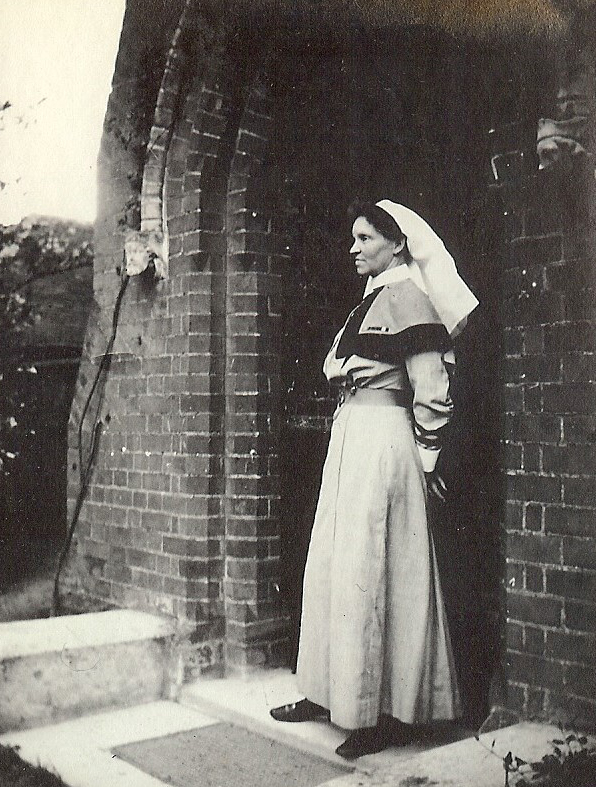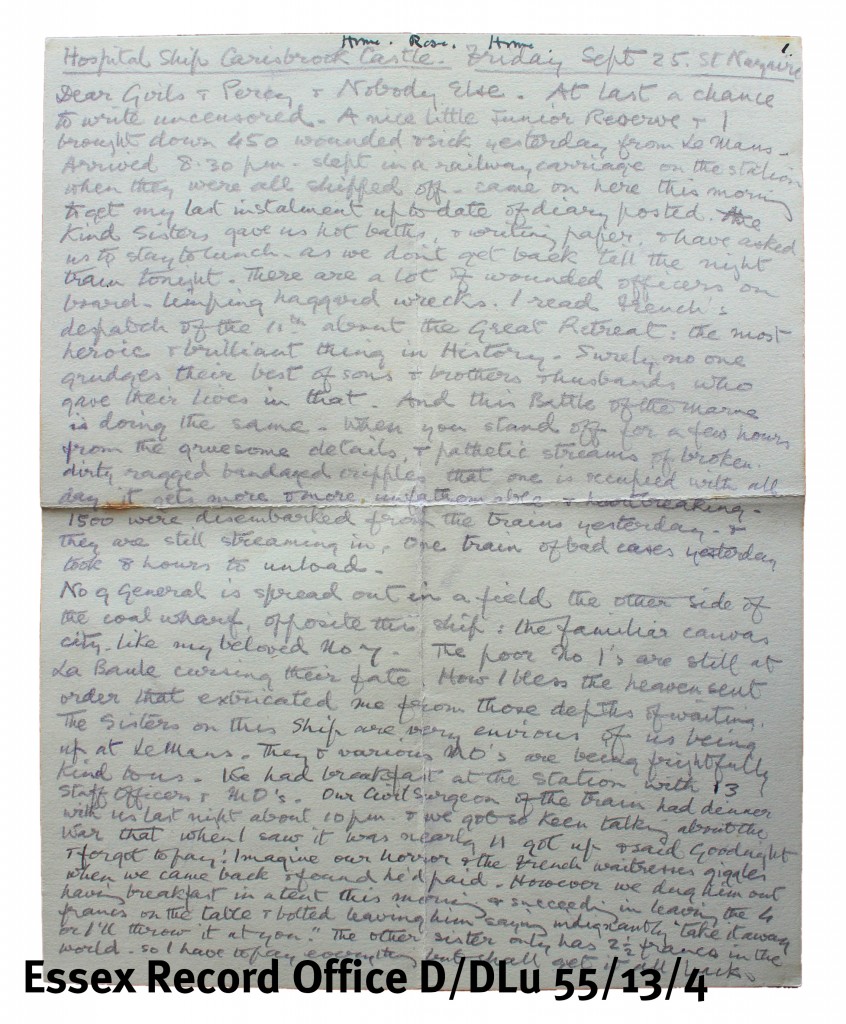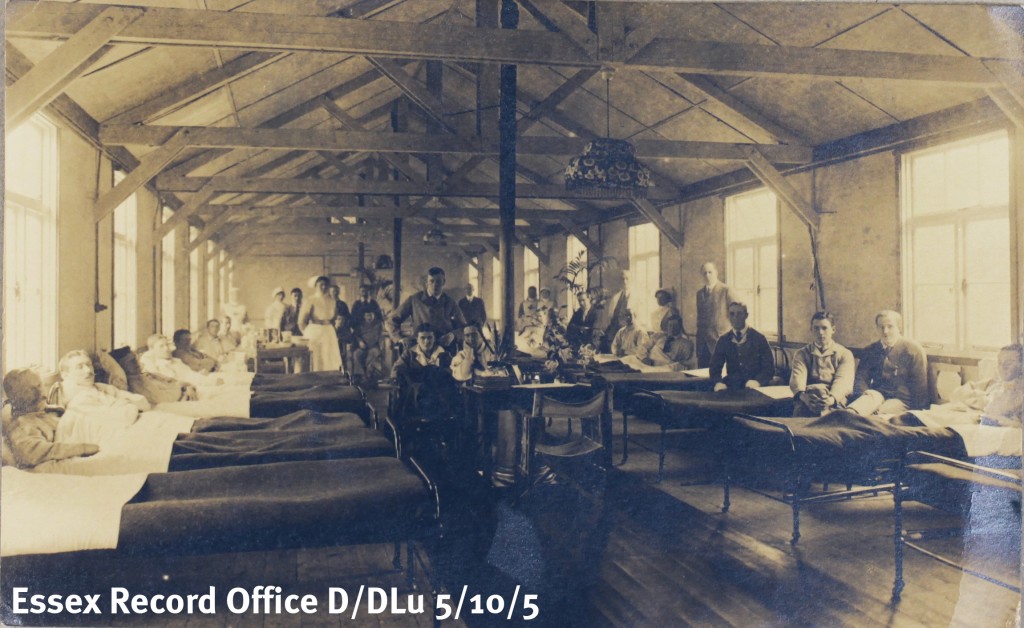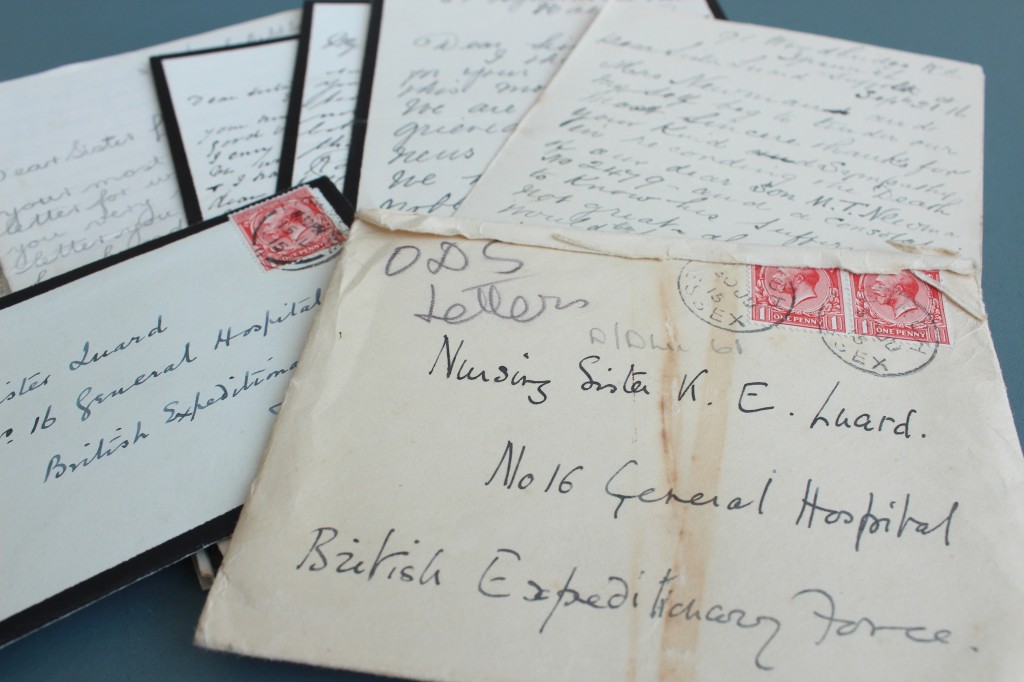On International Women’s Day 2015, we thought we would highlight the story of one extraordinary Essex woman, Sister Kate Luard. A version of this post first appeared in Essex Life magazine.
Katherine Evelyn Luard was born in Aveley in 1872, the tenth of 13 children, the daughter of a vicar. She grew up at Aveley Vicarage, and then Birch Rectory near Colchester.

Sister Kate Luard in her Queen Alexandra Imperial Military Nursing Service Reserve uniform in the doorway of her family home, Birch Rectory. Reproduced courtesy of Caroline Stevens.
Kate, known as Evelyn or Evie to her family, was aged 42 when the First World War broke out, but she headed straight to France, arriving there on 20th August 1914, just 16 days after war was declared. She had previously served as a nurse in the Boer War in South Africa in 1900-1902, and joined the Queen Alexandra Imperial Military Nursing Reserve as a Sister. She worked as a nurse on the Western Front until December 1918, in field hospitals, casualty clearing stations, and on ambulance trains. She was awarded a Royal Red Cross and bar for exceptional service in military nursing.
Kate and her family exchanged hundreds of letters during the War, many of which are held at the ERO, and she also kept a diary, which was published anonymously in 1916 as Diary of a Nursing Sister on the Western Front, 1914-15; a copy is available in the ERO library. A collection of her letters was also published in 1930 as Unknown Warriors: the Letters of Kate Luard, RRC and Bar, Nursing Sister in France 1914-1918. A new edition of Unknown Warriors was published in 2014 – you can find out more about it here (again, a copy is available in the ERO library).
Kate’s letters home are a mixture of descriptions of her nursing work and requests for her family to send her food and other home comforts. In one letter written from the Hospital Ship Carisbrook Castle at St Nazaire she describes a night transferring sick and wounded soldiers from the hospital train she was then stationed with:
When you stand off for a few hours from the gruesome details & pathetic streams of broken, dirty, ragged bandaged cripples that one is occupied with all day it gets more & more unfathomable & heartbreaking. 1500 were disembarked from the trains yesterday & they are still streaming in. One train of bad cases yesterday took 8 hours to unload.

First page of a letter from Kate Luard to her family written from the Hospital Ship Carisbrook Castle (D/DLu 55/13/4)
In another letter written from Rouen Kate asked her family to send her a tin of bullseyes, a tin of oatmeal biscuits, tea, Slade’s toffee, chocolate almonds, a large homemade spice cake, a tin of honey (if such a thing existed), and nut-milk chocolate. She also asked for an aluminium camp candlestick, a probe and a comfortable cushion to use on the uncomfortable hospital train.
Kate worked on the Western Front throughout the war, and returned home in 1918 to care for her sick father. She later worked as matron of a house at a boys private school, and in the last years of her life she lived in Wickham Bishops with two of her sisters.
If you would like to discover more about Kate, have a look at the published versions of her diary and letters in our Searchroom library, or you can order up the documents we look after that relate to her for yourself. If you would like to find out more about our county during the War, keep an eye out for our First World War displays and events throughout 2015.


